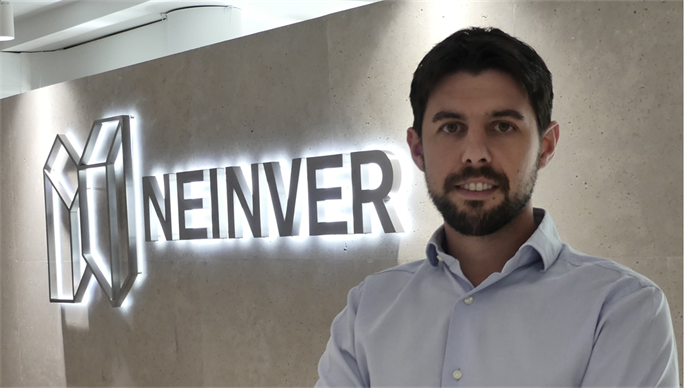According to the International Monetary Fund, global growth is projected to slow from an estimated 6.1% last year, to 3.6% in 2022 and 2023. This is 0.8 and 0.2 percentage points lower than January’s prediction.
As a result, some voices and respected publications predict commitment to the Environmental, Social and Governance (ESG) agenda will drop, due to being unaffordable.
Soaring inflation, war in Europe and an energy crisis, fuel these concerns. So, is ESG too ‘woke’ for a time of crisis like 2022?
Alberto Vilches, Sustainability Manager at Spanish multinational owner and operator of retail outlets, Neinver, says not. He points out that during the global health crisis of 2020-21, people predicted ESG investment would fall. ‘But it actually increased,’ he says. ‘Today, there are concrete forces strengthening ESG. The political will behind ESG is strong across Europe and beyond. We see this in the avalanche of regulations.’
Vilches says Neinver’s proactive approach to ESG is important for business, and more than that, it’s a requirement from the market to investors, developers and operators in retail and other asset classes. It eases access to capital, affects the chance to increase assets’ liquidity, and makes it easier to rent out assets. Also, RICS recently advised on how to include ESG in commercial building valuations and some valuation companies now request this data.
A wave of ESG regulation in local markets and from the European Union means it’s key for real estate players to define a corporate approach and build up internal knowledge on several ESG topics.
‘Previously, sustainability was understood mainly as a choice to embrace responsibility or make a commitment,’ says Vilches. ‘But ESG events are starting to have an impact on business of their own, whether you like it or not. Navigating this tsunami of new ESG requirements without an active and coordinated management would be extremely difficult.’
Responding to EU regulation
Top of corporate agendas is climate change, due to European Commission (EC) regulations on achieving 55% carbon emissions cuts by 2030. The EC also wants to expand the use of the EU’s Emission Trading System (ETS) to the building sector. This matters because the building industry is responsible of 36% of European greenhouse emissions.
From 2026, all fuel consumption in buildings could be taxed, thereby increasing utility prices and giving another reason to swiftly transition from gas boilers to electrical heating. The proposed expansion of the ETS can be expected to affect carbon costs and energy prices.
One issue for retail owners is that most energy consumption comes from units occupied by tenants. For example, in France, there is regulation on energy consumption – the Décret Tertiaire – which imposes obligations upon entire commercial buildings. Regulation like this makes collaboration necessary between tenants and landlords on energy and carbon reduction targets and shows that addressing the challenge of energy consumption in retailers’ units is one of the most relevant topics.
Neinver’s approach is based upon partnership building with retail tenants along aligned, shared interests. Vilches explains: ‘We use technology to automate the compilation of tenants’ energy consumption data and steadily serve the retailers that operate in our centres. We are going to start advising them about their plans in a smart and responsible way.’
‘This will continue to be very important for tackling future challenges, including ESG questions,’ says Vilches.
Capital markets demand active ESG management
Active management of ESG aspects to meet capital markets’ demands is more relevant than ever. ‘Sustainability departments within firms have traditionally managed ESG elements such as energy, water, the circular economy, and human rights. However, this was only because sustainability was a long-term issue for the economy and resources.
‘But as is happening with energy or carbon prices, there are ESG factors that could become a real risk, today,’ says Vilches. ‘We could think in terms of scarcity of some materials in the supply chain, or lack of access to water during droughts.’
Vilches points to yet more examples of how ESG is being codified and embedded in legislation and regulation. Regulatory changes in capital markets will boost the ESG agenda, either by choice or the need to provide information. ‘There is the Green MiFID, which requires anyone who invests in a fund to answer the question, ‘do you want to make it sustainable or not?’ Seeing as we observe high appetite among investors for sustainability, most will likely answer, ‘yes.’’
‘Policies such as the Green MiFID, which will impact businesses’ organisational requirements and the operating conditions of investment firms, shall affect the commercial real estate sector. The application of this measure is still ambiguous, but it’s clear it’ll have an impact coming from the capital markets.
‘Another change is the Sustainable Finance Disclosure Regulation and how it defines sustainability risks as the risks of an ESG event which could have a financial impact on a company. This will make organizations pay more attention and put more resources into it,’ Vilches says.
‘Aligned with this approach are the recommendations from the Task Force on Financial Climate-related Disclosure.
‘This idea of how sustainability risks may impact companies is also considered in the Corporate Sustainability Reporting Directive. This will make it mandatory for companies to explain how sustainability factors could have an impact, both positive and negative.
‘Furthermore, we can see demand from financial institutions is growing for sustainability requirements,’ Vilches says.
But amid the current period of disruption, is it unfair to demand companies comply fully with new rules when some are fighting for survival? This is being addressed. The ‘traffic light’ framework of the new Taxonomy credits different levels of ambition for complying with the sustainability requirements, allowing for some sustainability leeway.
Vilches believes the costs of disregarding sustainability now and in future will be greater over time, with new ESG challenges set to emerge. ‘As we saw during the pandemic, when sustainability and ESG really boosted, this is not only a matter of doing the right thing, but also about being prepared for future challenges,’ he says.
ESG Materiality is key
It’s clear ESG is a big, broad subject and retail players should focus on material topics. Neinver recently published its new strategy, ‘Building Tomorrow,’ which incorporates and builds upon the emerging regulatory reality, by analysing how ESG impacts it and how Neinver can have a greater positive impact upon people and the planet.
ESG is a lived value at Neinver, says Vilches, that’s not dependent on changing conditions. The Spanish company has embedded ESG in its practices for more than a decade, building its first retail outlet centre to BREEAM’s ‘New Construction’ standard, back in 2011.
‘We see the added value that active asset management can give to portfolios, considering all the challenges ahead,’ says Vilches.
The results for Neinver look good, so far. Every single asset owned by the company is certified by BREEAM, with 87% of buildings holding the desirable ‘Excellent’ rating. Meanwhile, last year the global ESG certification body, the Global Real Estate Sustainability Benchmark, awarded Neinver’s managed Neptune fund five stars, ranking it among the top 20% of its peers in the real estate industry.
Forward-looking companies are pressing ahead with their ESG agendas, despite the uncertainty. Vilches reveals Neinver is set to embark upon an ambitious project this year, to slash by more than 30% the volume of CO2 emissions which the common areas of its assets generate.
This is a step on the path to Net Zero Carbon which will be achieved by installing above six Megawatts of capacity in assets in Spain, France and Poland, providing 40% of the energy used in Neinver’s properties’ common areas. ‘We believe this is an impressively high degree of alignment that shows the high transitional climate resilience of our portfolio,’ says Vilches.
‘For Neinver, ESG goes beyond responsibility or commitment and is part of how we do business. Active management is a skill that has always differentiated us and which we will need to continue to excel in, in order to overcome the difficult times ahead.’


































